The article discusses the incredible anamorphic glass sculpture “Human Animal Binary” by Austrian artist Thomas Medicus. The sculpture features four endangered animals: a lynx, a bee, a kingfisher, and a river trout. Each animal is composed of more than 144 strips of glass, painted with fragments of the animal’s body, creating a dynamic optical illusion that changes depending on the viewing angle.
The installation is designed to address the dilemma of human habitat contradicting coexistence with non-human animals. It is constructed of glass, concrete, and metal and is meant to be a lasting work, potentially serving as a memorial or relic in the future. The artist’s intention is to highlight the fragility and resilience of nature in the face of human impact, particularly in the context of the climate crisis.
The installation made of glass, concrete and metal addresses a dilemma in which a large part of humanity finds itself: Human habitat largely contradicts coexistence with non-human animals. In order not to exceed the capacity limits of the planet and thus prevent the destruction of our living space, the fundamental act of renewing the foundations of civilization in dealing with the environment is needed. The climate crisis makes it clear once again that our understanding of “nature” as something other, subordinate to us, has begun to crumble and a new design has become overdue. Human/Animal Binary was designed to last. One day the installation will stand in a different social context: as a memorial that has come true or as a relic of a time that has been overcome.
Thomas Medicus
More info: Website, Instagram.
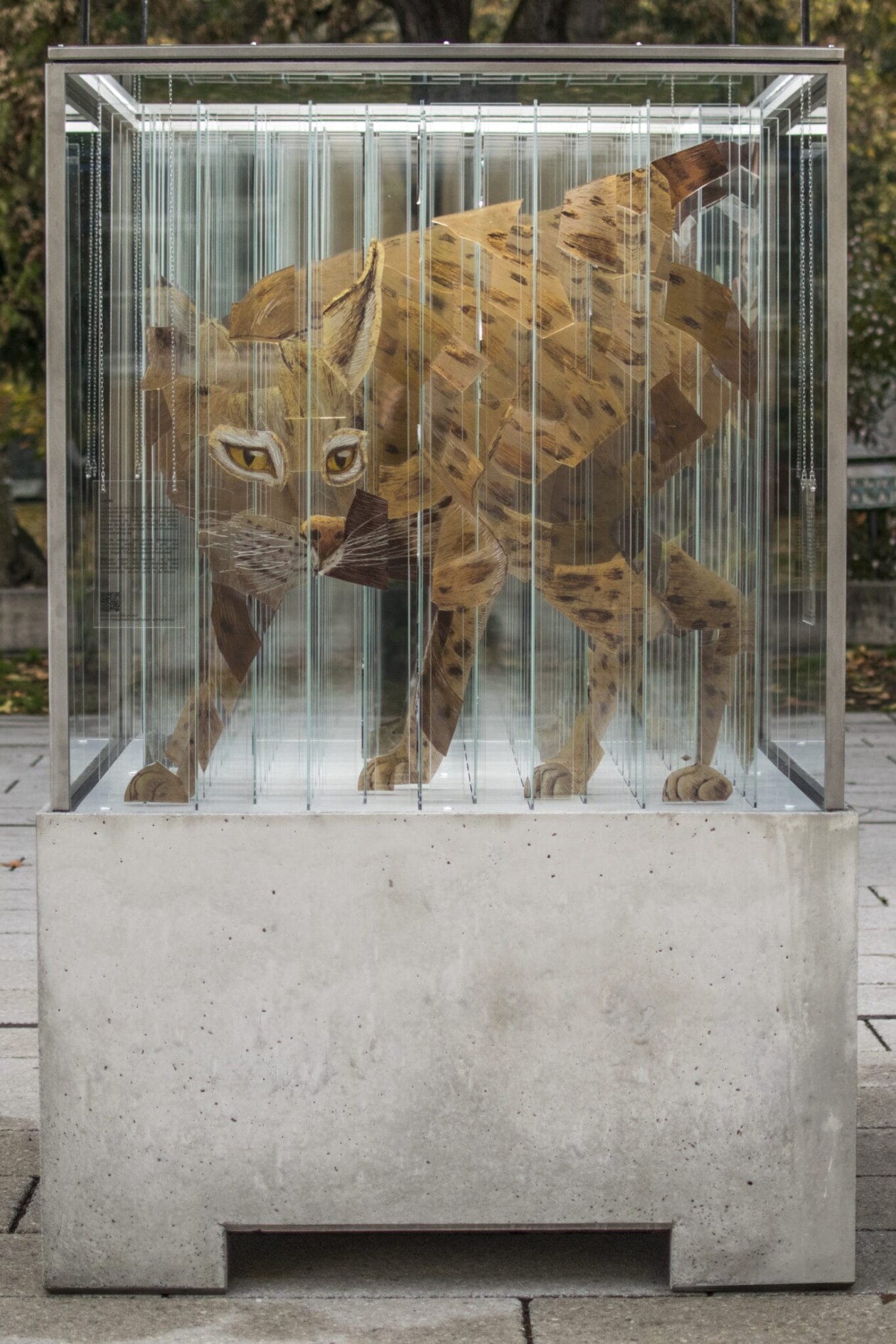
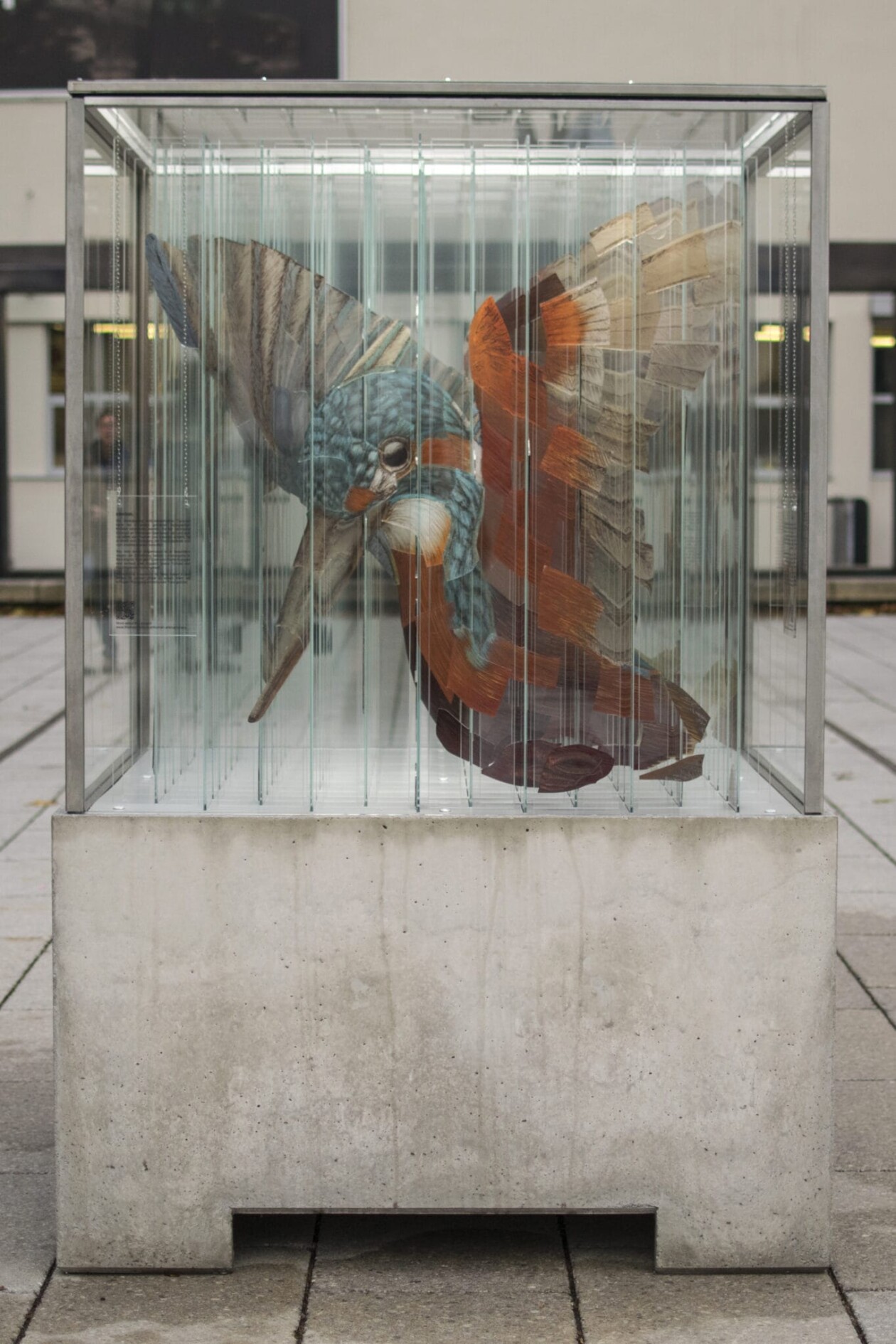
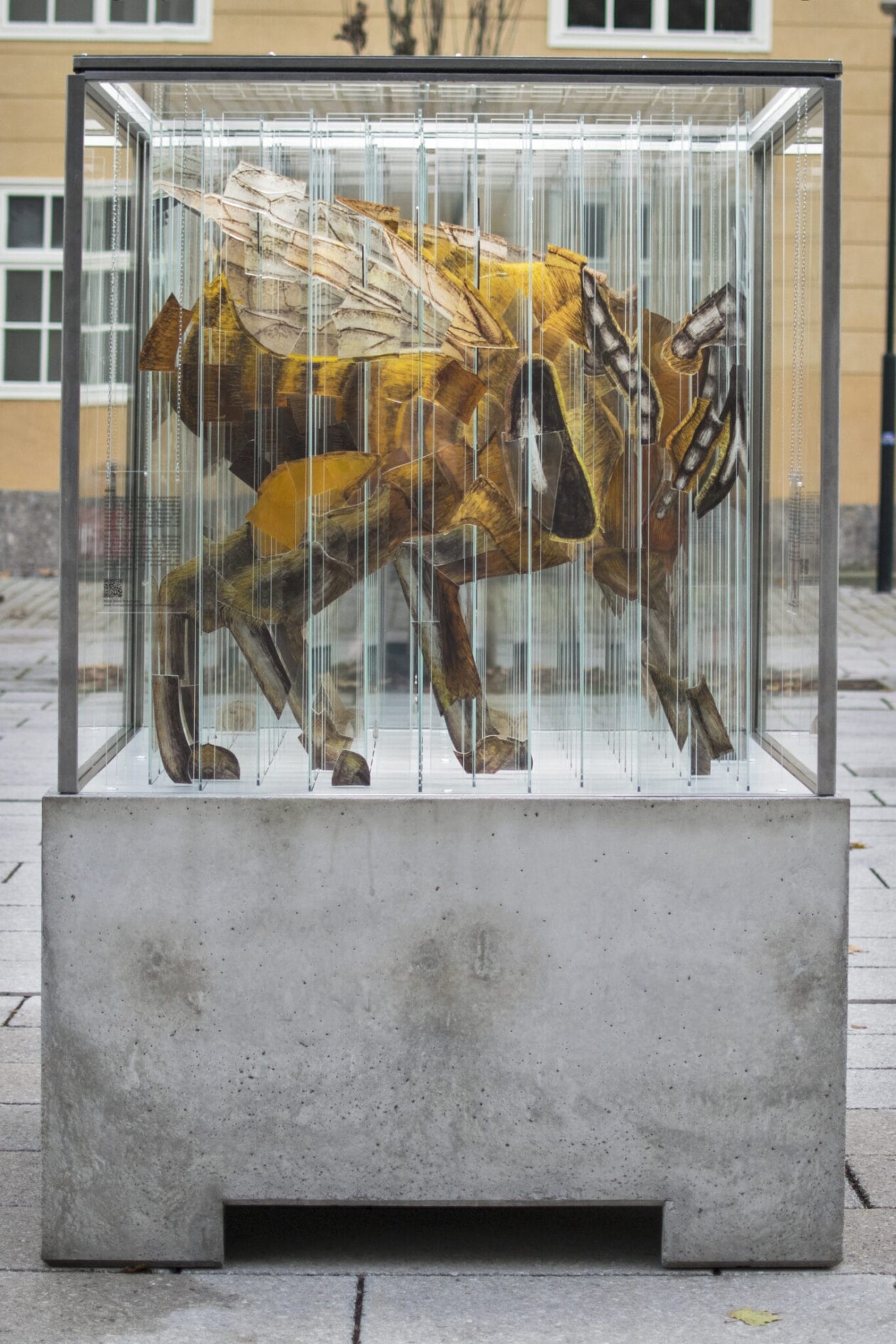
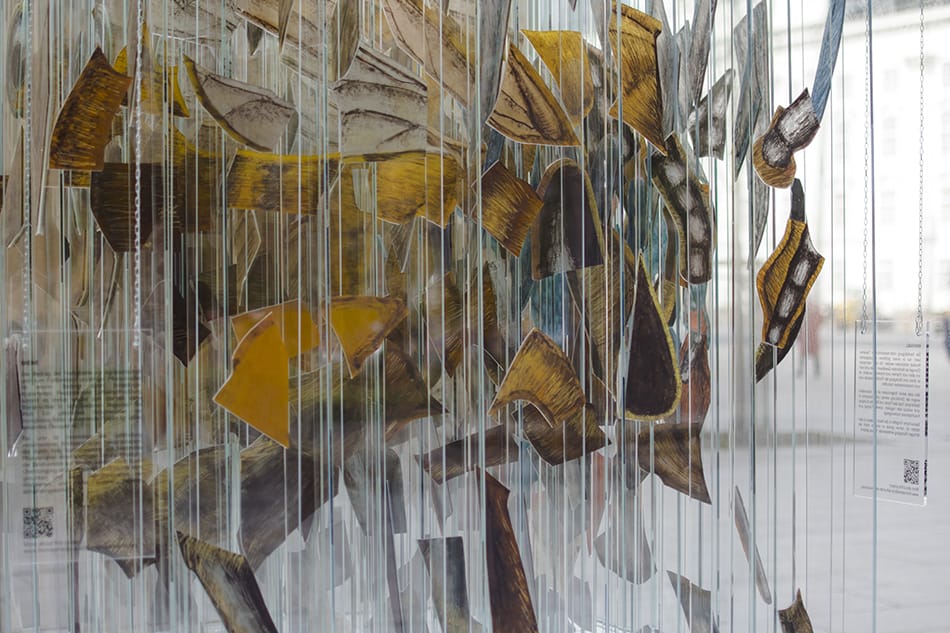
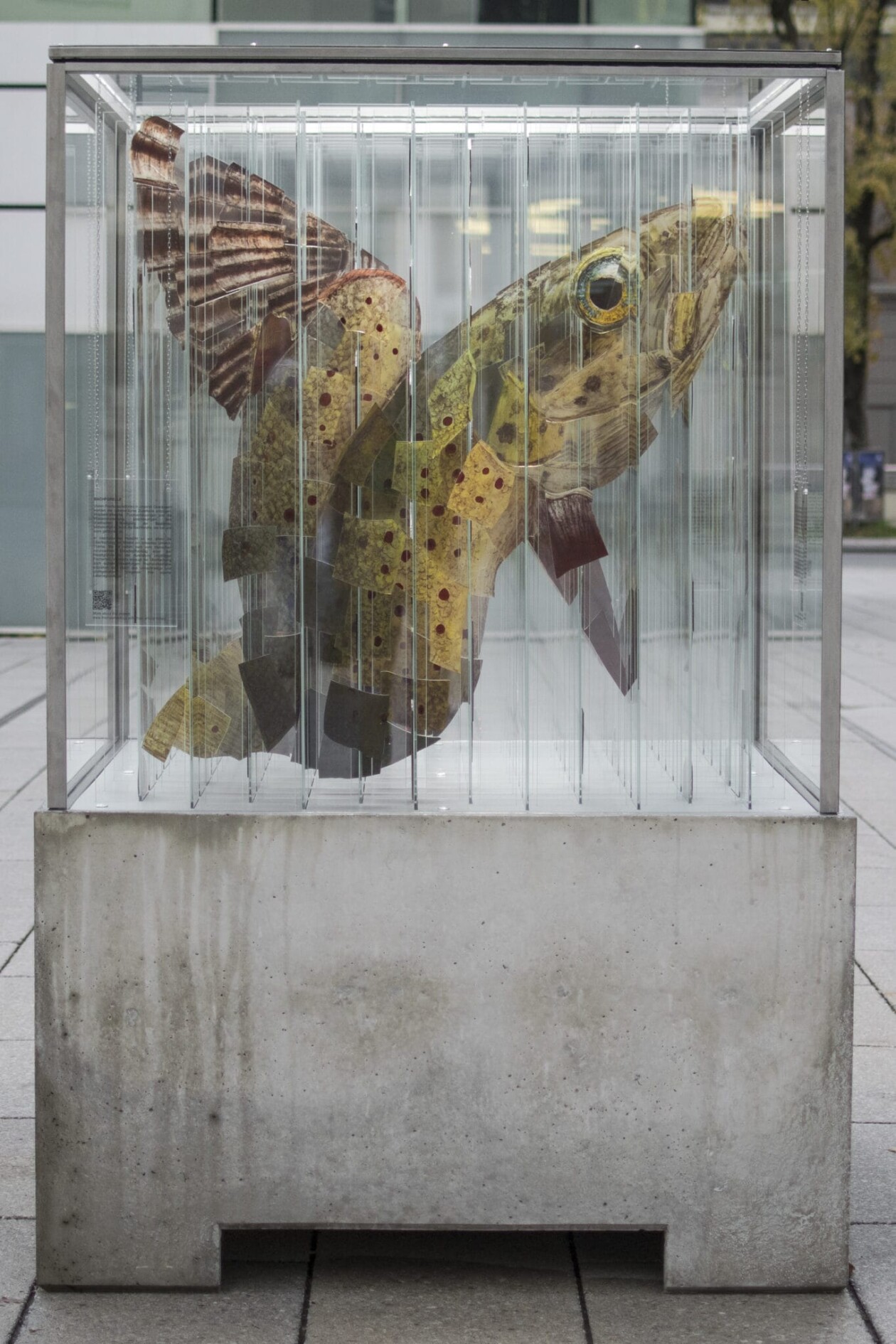
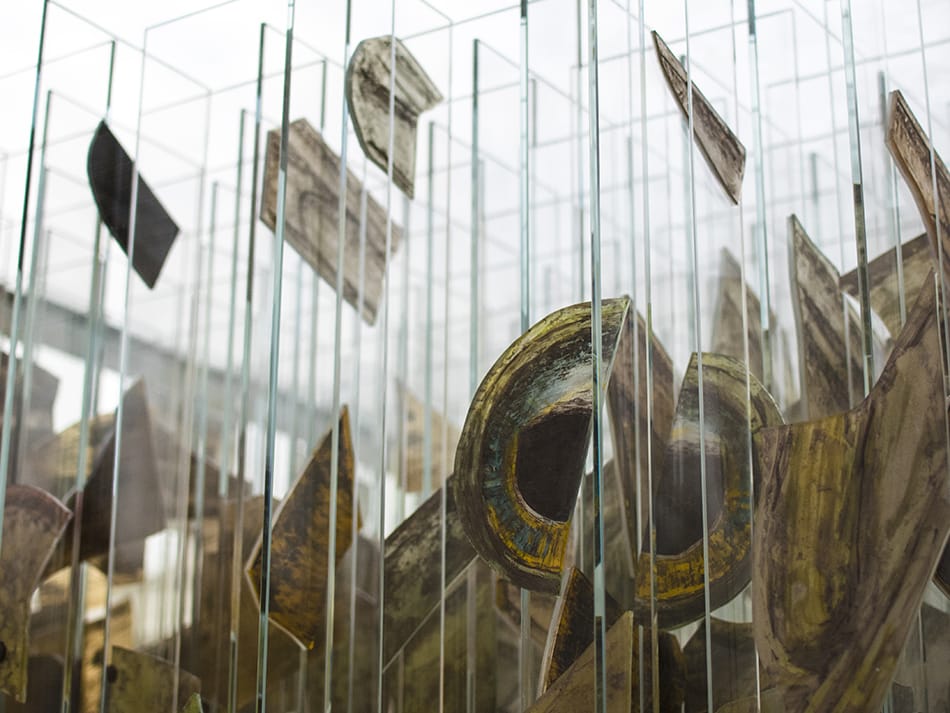
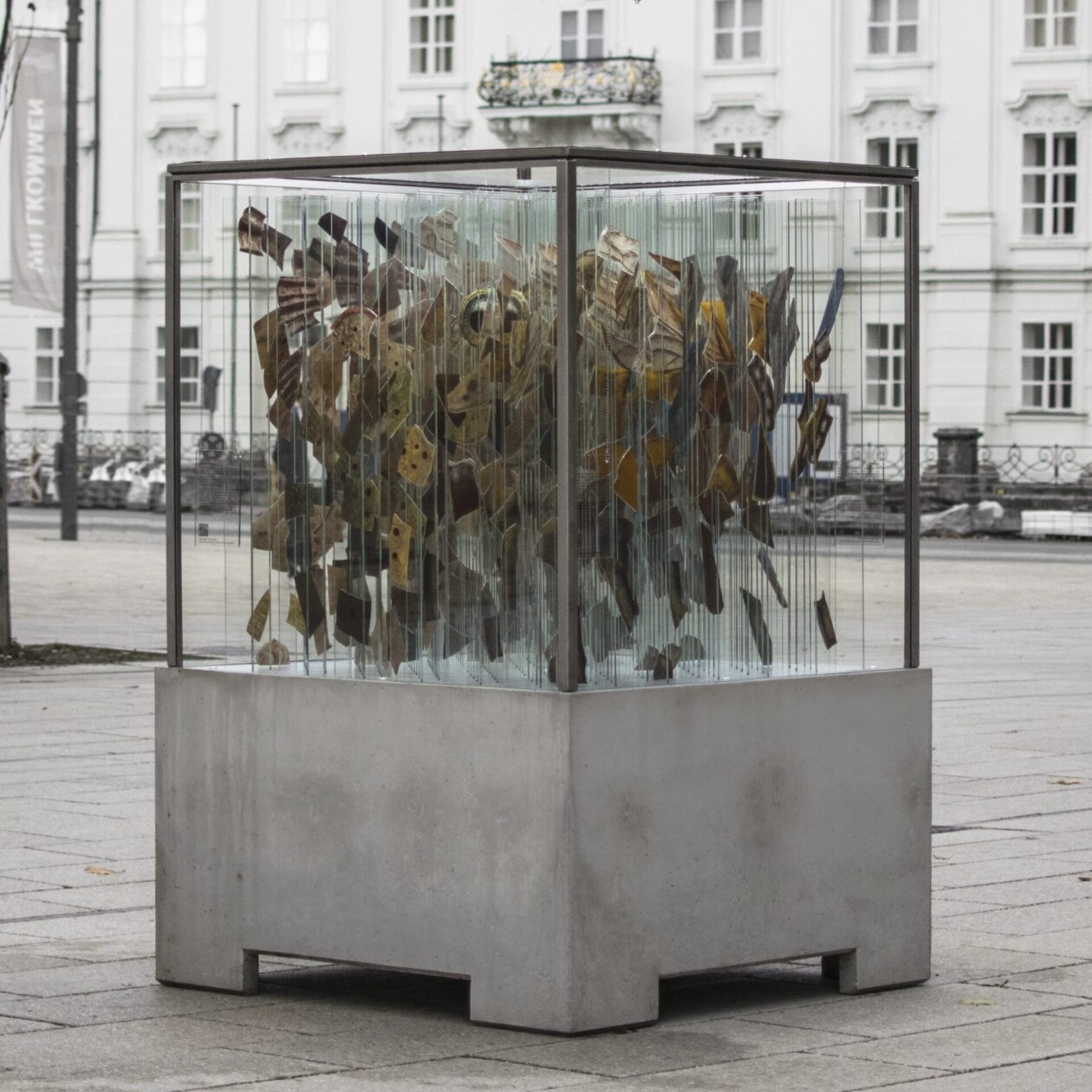
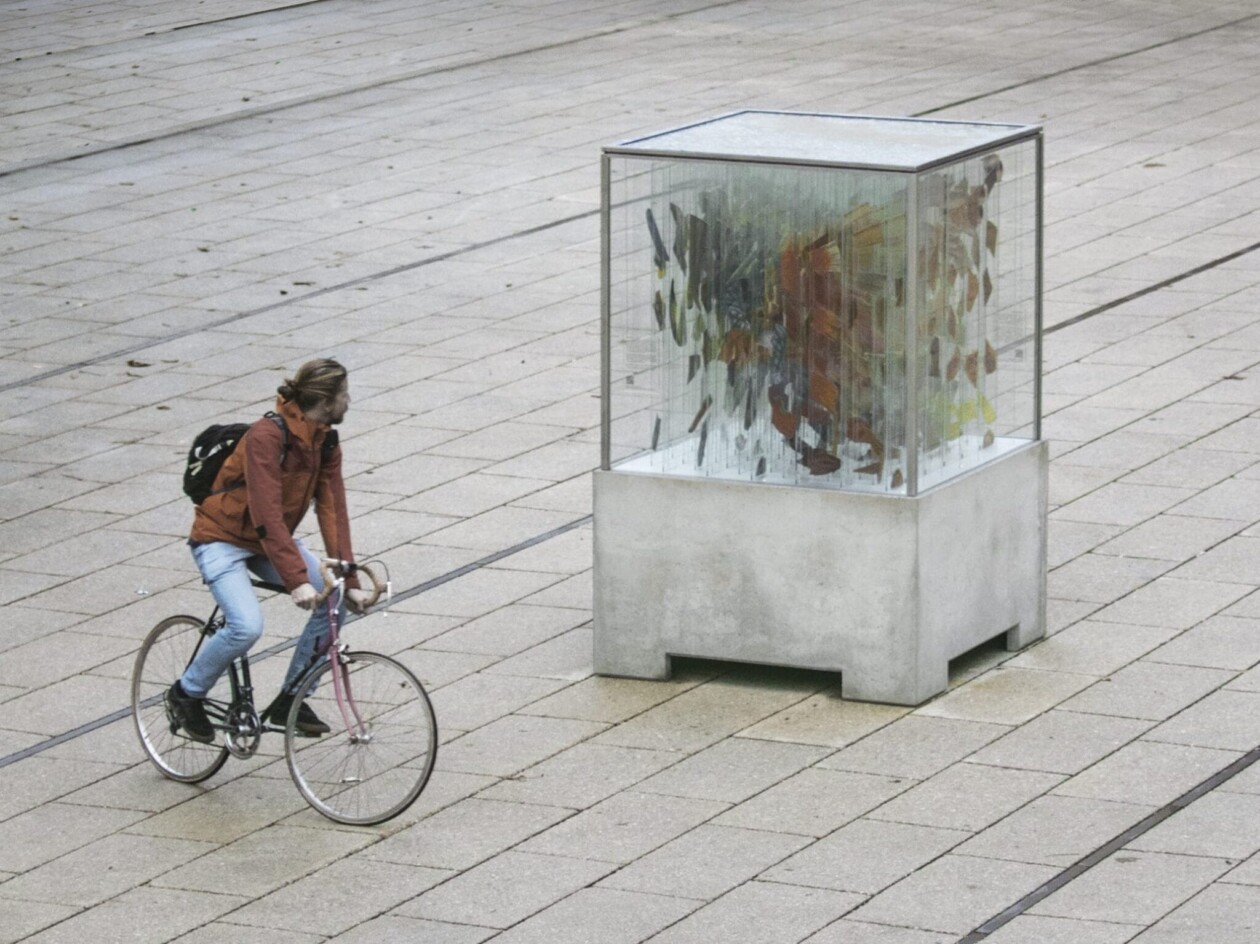
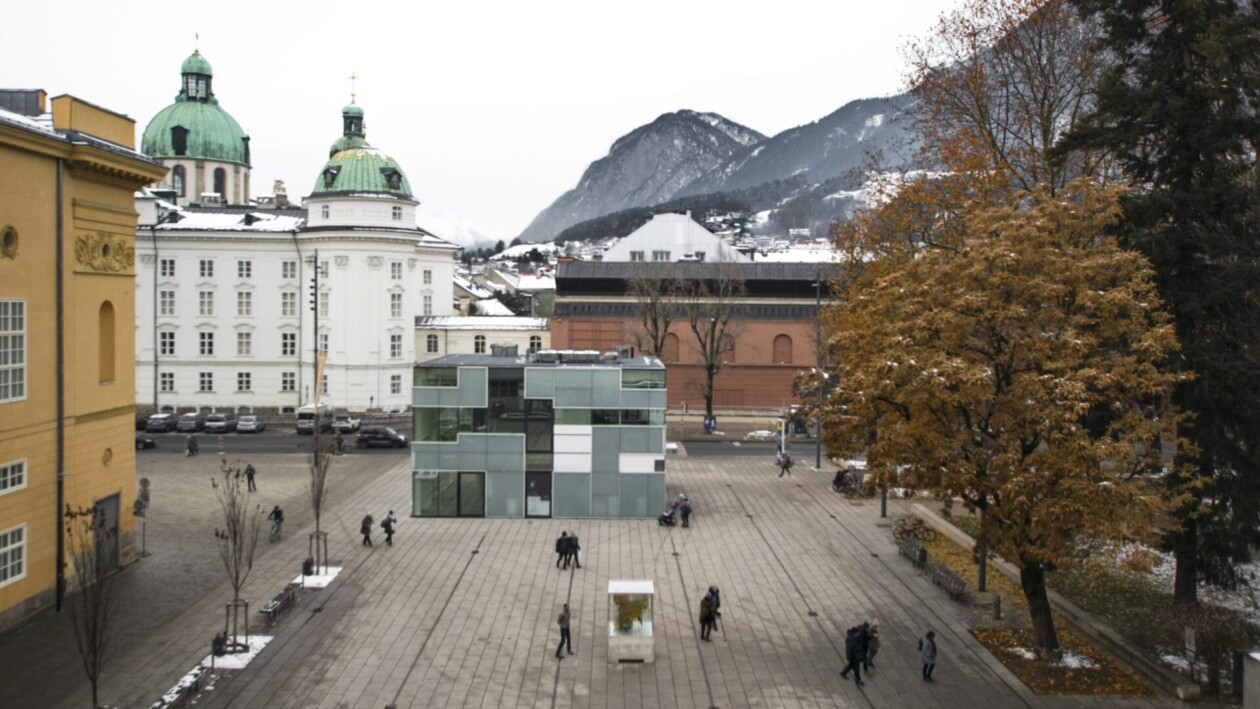
 in Bahia.
in Bahia.